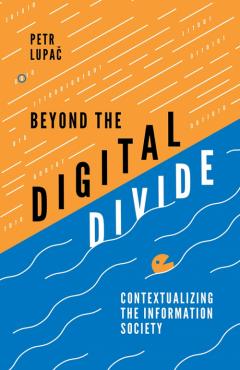This book critically reviews existing digital divide research and challenges its core thesis, which posits unequal Internet access as a newly formed source of social disadvantage. The author begins by introducing the building blocks of the information society theory. The book goes on to present a systematic overview of digital divide research - its development, arguments attesting to the social gravity of the digital divide, and current findings on the uneven diffusion and use of the Internet. It evaluates the validity of the theories and concepts associated with digital divide research. The author offers an overview and re-examination of six presumptions and biases found in the prevailing approach to the digital divide. Given that Internet use has, in certain contexts, become an absolute necessity, an alternative approach is proposed, recognizing the indispensability of Internet use as context dependent. The book concludes with a consideration of the implications that this new perspective has for the information society theory and policies as well as for the role of social science in the informatization process.
1. Introduction

